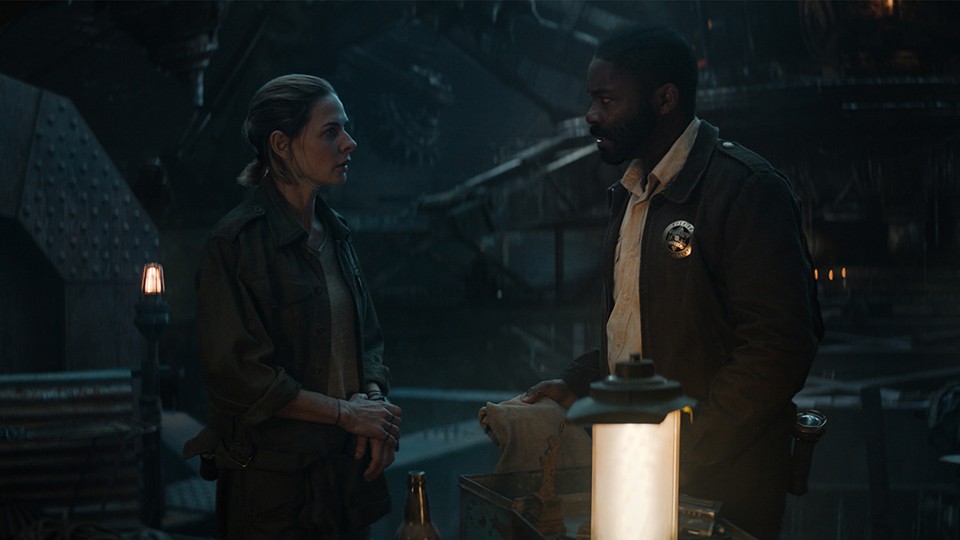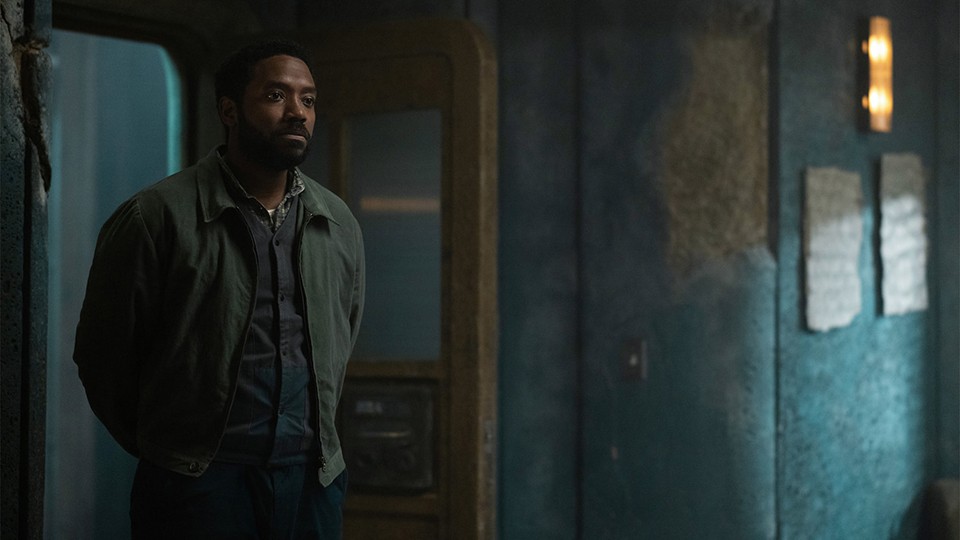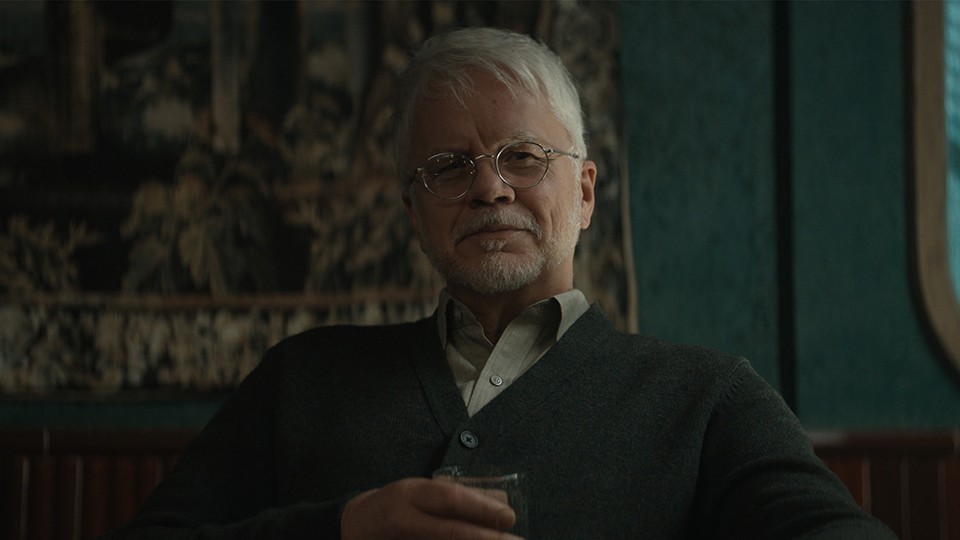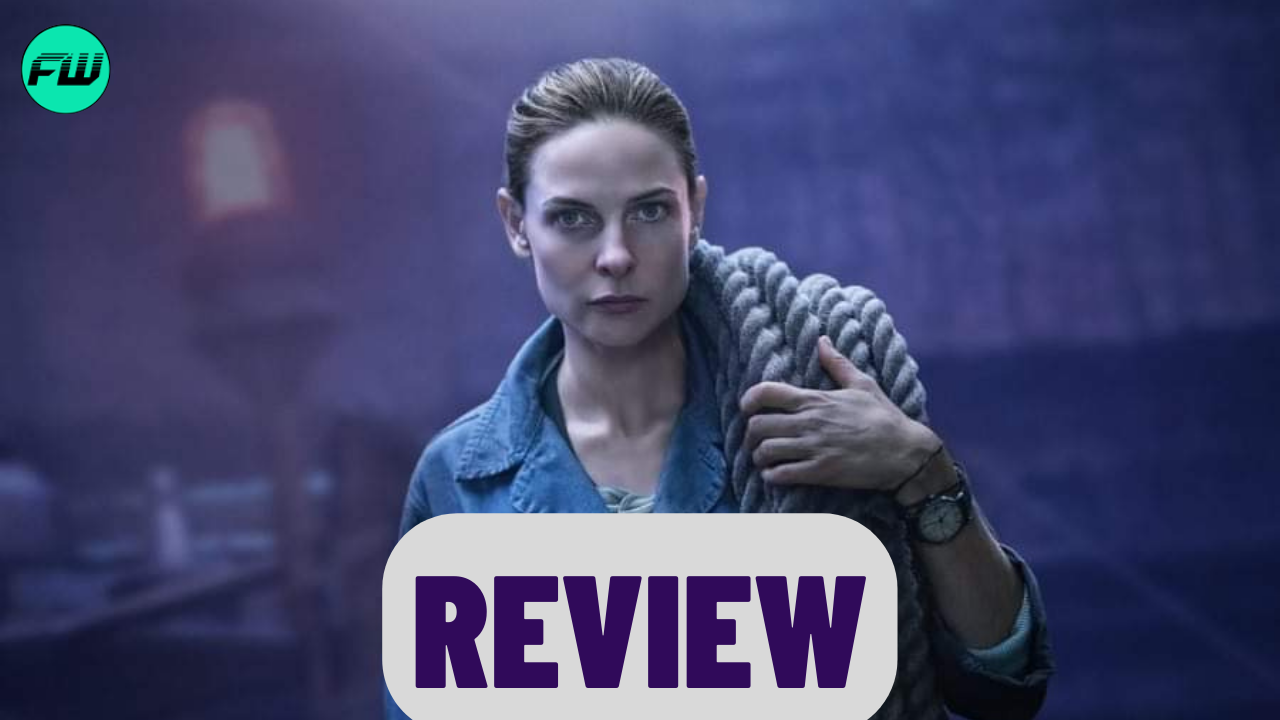“We do not know why we are here. We do not know who built the Silo. We do not know why everything outside the Silo is as it is. We do not know when it will be safe to go outside. We only know that day, is not this day.”
We hear this spoken several times throughout the first season of Apple TV’s Silo. And while we’ll leave its specific place within the show a mystery, the words alone actually provide a pretty good description of the dystopian setup for the show. And while that setup is terrific, the show doesn’t quite manage reach its full potential. But it’s still an entertaining, engaging dystopian mystery thriller.

The Plot
As indicated by the opening quote, Silo takes place in, well, a silo. In the show’s timeline, no one is alive now who was alive during the “before times.” Any information about the time before the Silo is either unknown or kept tightly sealed by those in power, as is the case with any good dystopian media. The big mysteries are obvious. What happened that drove the remaining population underground? Will it ever be safe to go outside again? Could it even be safe right now?
But while those big picture questions always loom large, most of the show focuses on smaller scale stories, most of which – to varying degrees – feed into those larger questions. The majority of Silo’s first season is told through the eyes of engineer Juliette (Rebecca Ferguson). She gets pulled into the deeper mysteries when she starts looking into the death of someone close to her. As she gets closer to that truth, she starts to realize everything in the Silo may not be as it seems.

The Critique
Silo’s setup is fairly standard for the futuristic dystopian genre, but that’s fine because it works. You put a group of people together living under authoritarian rule with those in power seemingly keeping big secrets from everyone else, and you have great framework for a compelling story. From there it’s on the showrunners, writers, and director to give us compelling characters and engaging storylines within that initial setup. And for the most part, Silo succeeds.
I’m all in on the bigger mysteries and questions laid out from the jump. If you tell me the air outside is toxic and anyone who goes out will die within minutes, I’m automatically not going to believe that and will be invested all season long, waiting to find out whether it’s true or not. And for me, the “how did we get here?” question is always one I’m interested in with dystopian fiction. Not every book or movie or show answers that question, but I’ll keep my eyes peeled for any little hints that might drop.
Also Read: Dead Ringers Review – A Weisz and Risky Post-Modern Gothic Miniseries
While the larger scope questions and that setup is effective and draws you in right away, it’s Silo’s smaller stakes storylines that don’t always work quite as well. For how unique the world building is here, these parts are much more generic. A person dies and someone close to them believes it’s a murder even though the official ruling is it’s not murder. Those in power want to stay in power so they can…stay in power. There were opportunities to go unexpected routes with the laying of the initial groundwork that weren’t capitalized on.
That being said, however, good writing and well-developed characters help pick up the slack. It obviously helps having someone like Rebecca Ferguson as your main character, but she’s also given a lot to work with. Juliette’s introduction tells you everything you need to know about her right away to get you invested in her story, but the script still makes her a complex character as we learn more about her. The supporting characters are great too. Tim Robbins as Bernard, head of IT, and Harriet Walter as Martha Walker, another engineer with connections to Juliette’s past are two particular standouts. But the cast at large is a major strength; there’s no weak link.
Silo’s biggest problem is how it balances the death investigation and other smaller scale plot lines against the larger questions it sets up. They don’t always match up with each other, giving the season a bit of a disjointed feel at times. These character-driven stories are set up to feed into the bigger questions, but it doesn’t always come across as natural of logical connections. This is the weakest area in otherwise strong writing across the season.

In Conclusion
Silo doesn’t take full advantage of its unique setting, and some viewers might be left slightly dissatisfied with how much is answered, and to what extent, by the season’s end (I wasn’t, for what it’s worth). Though that’s always a tricky thing to manage in shows like this. But I thought it struck a good balance by the finale’s end. And like any good show should, it leaves you with a juicy tease of what could come in a second season.
The end result is a very solid first season, anchored by its terrific ensemble cast. If it tightens up the storytelling just a touch, and has a clear vision for where any future seasons are headed, Silo has the potential to become great.
Silo premieres on Apple TV+ with two episodes on May 5th, with the remaining 8 episodes released weekly each Friday.


